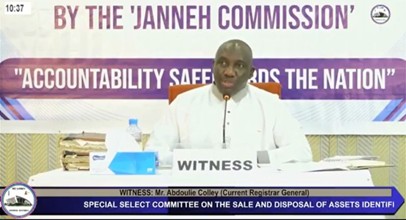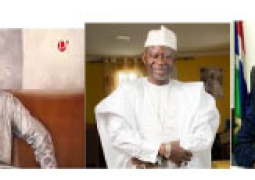
Appearing before lawmakers scrutinising the disposal of Jammeh’s assets, on Friday, Mr. Colley disclosed that only 16 properties belonging to the former president have so far been confirmed in the new digital registry. But when pressed, he admitted it was “possible” that many more properties had already been registered afresh, under new titles, and without his office being properly aware.
“Once a title is cancelled, the property reverts to the Minister of Lands,” Colley explained. “If it is leased to somebody else and comes back into the registry, it comes as a new property with no history.”
“It’s not ideal, especially for transparency,” Colley admitted. “Because now the properties can be allocated or sold, and nobody would know apart from the Minister of Lands.”
The testimony further highlighted glaring discrepancies in property lists tied to Jammeh’s holdings. Colley’s office submitted a list of 188 properties, while the Attorney General’s records referenced around 150 properties. The Janneh Commission itself reported over 288 properties, fueling suspicion that not all Jammeh assets have been fully traced or accounted for.
Records showed with that of a high-value plot known as K355 of 2009, located at the Jembe Hotel Junction near the Kanilai Cultural Centre, the property’s title was cancelled in 2018 while the Janneh Commission was still conducting its probe.
Counsel questioned why properties were being stripped or reassigned before the inquiry had concluded.
“The history is killed,” he said, unless specific measures are taken to preserve it in the recitals of the new deeds. Without that safeguard, watchdogs and the public would have no way of tracking whether forfeited state properties were resold, leased, or possibly recycled into private hands under new names.
Counsel questioned whether stamp duties were properly paid for the few properties already transferred? Colley insisted buyers were responsible for payment. However, when challenged, he admitted gaps existed in receipts provided, raising fresh questions about whether some transactions bypassed the Gambia Revenue Authority altogether.





